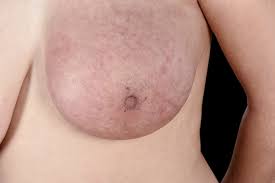
|
Vol 73 |
Page 11 |
Privacy Policy | Editorial Policy | Profit Policy | Join the Association | List of Members | Contact us | Index | Links
Back Go to page: 1 2 3 4 5 6 7 8 9 10 11 12 13 14 15 16 17 18 19 20 Forward
Veterans and Veterans Families Counselling Service (VVCS) can be reached 24 hours a day across Australia
for crisis support and free and confidential counseling. Phone 1800 011 046.
VVCS is a service founded by Vietnam Veterans.

Health and Life-style.
Contents.
Breast cancer - How to reduce the risk.
Can you lose weight by exercising?
Is sleeping naked better for your health?
![]()
Is sleeping naked better for your health?

Sleep, everyone has to do it, and we all have our own rituals to help us get the best rest possible. Some people just can’t drift off wearing pyjamas, anything but being naked is far too constricting, for others, PJs are a must and they simply can’t snooze without them.
We all have our personal preferences, but what’s scientifically best? It turns out there really is a clear winner in this particular race.
Quality of sleep
The key difference between sleeping nude and in pyjamas is body temperature. It seems you may sleep better naked as your body will remain cooler; overheating is a common cause of disturbed sleep. People with insomnia generally have a warmer core body temperature when trying to fall asleep than those who nod off quickly, so if you’re struggling to get to sleep it might be wise to strip off. Your body temperature also affects the quality of sleep as well. Being over-hot in bed by three to four degrees changes brain-wave patterns, reduces the amount of time you spend in REM sleep (so you wake up feeling less refreshed), increases awakening and reduces deep sleep.
However, as with most things, there is a balance to be struck. Don’t get too cold, as cold exposure will also increase wakefulness.

Depending on where you live, (Hobart or Canberra for instance) it’s probably not a good idea to sleep naked in winter but if your bedroom is at the recommended temperature of between 18 and 24 degrees Celsius all year round, then there shouldn’t be a problem.”
Yeast infections.
Yeast infections thrive in warm, moist, close spaces and sleeping naked can reduce the risk of fungal skin infections. By allowing ‘airing’ between the legs, you may benefit from fewer recurrent thrush infections, although it’s worth noting that other factors are at play such as iron levels, glucose tolerance, stress and general immunity. Men can get fungal skin infections in skin creases around their groin, too – commonly known as Jock Strap Itch, Keeping the area cool, dry, clean and ‘aired’ at night will help to reduce the overheating that promotes this – especially in summer.
Relationships.

It might sound like a stretch but ditching your PJs could actually help your relationship. Sleeping naked gives a sense of freedom and may help you feel more loving. Humans are highly tuned to the sight of bare skin, which acts as a signal for sexual arousal.
Science backs this up. Consider this research, which found that nude bodies were more arousing than clothed bodies and can trigger sexual behaviour.
Stress.
If you’re too hot in bed, this could actually increase your stress levels and prevent you from waking up well rested and calm. If sleep is disrupted from being too warm, your body produces more cortisol than usual. Cortisol is a stress hormone that is associated with long-term (chronic) stress and puts the body on red alert.
It’s something of a vicious cycle – if disrupted sleep makes you more stressed, your snooze is likely to be even worse with all the worries whizzing through your head.
Fertility.

Whether you wear PJs or not probably won’t impact a woman’s fertility, but it’s not quite the same for men. If a man is too hot overnight, his sleep might be disturbed, which can affect the secretion of testosterone. Sleeping naked may help to promote a healthier sleep pattern so normal testosterone production occurs. More importantly, healthy sperm production needs a cool environment of 32 degrees C, five degrees below normal body temperature (which is why the testes are outside the pelvis). Even a daily soak in a hot bath or sauna (43-45 degrees C) can lower a man’s sperm count, as can wearing tight, insulated athletic supports.
Men who wish to father children should avoid hot baths and wear loose, cotton underwear, never tight, polyester pants. They might also consider sleeping naked to stay cooler at night.
Skin.
Research shows that overheating at night could affect your skin. That’s not saying you’ll definitely overheat and develop a skin condition in pyjamas, but it’s worth keeping in mind that your body temperature will be lower if you’re in the nude. This study found that people who were too hot by three or four degrees in bed started to sweat more, which could contribute to starting or worsening skin conditions.
Are egg yolks actually bad for you?
Eggs have been demonised by the health-food industry in the past. Whether scrambled with avocado on toast, poached with asparagus or boiled with whole-wheat soldiers, it’s hard to resist the lure of a perfectly cooked egg for breakfast. They’re easy to whip up and are a tasty addition to lots of different dishes and but why do people think that eggs are bad for our health?
Eggs have had a bad reputation in the past; namely, the golden yolks. Fears around chicken eggs date back to the 1970s, during the so-called ‘low-cholesterol’ craze that saw people switch out their usual breakfast foods for low-fat diet products. During this time, egg yolks were considered unhealthy because they were thought to contain large amounts of dietary cholesterol, with experts warning that eating too much could raise your risk of heart disease.
The average large egg contains around 200mg of dietary cholesterol, and previous guidelines advised limiting the number of eggs you eat to three to four a week to stay within healthy limits, however, since around 2000, major world and UK health organisations have changed their advice on eggs, following research that revealed that dietary cholesterol in eggs does not adversely affect cholesterol levels in the blood.
Current research shows that for most healthy people, cholesterol in food has a much smaller effect on blood levels of total cholesterol and LDL cholesterol (the harmful type), especially when compared with saturated fatty acids found in food. Eggs are, in fact, low in saturated fat and the British Heart Foundation now says that moderate egg consumption, up to one a day, does not increase heart disease risk in healthy individuals. In fact, it’s the saturated fat in accompanying breakfast foods like cheese and bacon that we should actually be worried about.
The low consumption advice has since changed as it has become clear that blood cholesterol levels are less influenced by cholesterol containing foods. Eating naturally high-cholesterol foods such as eggs doesn’t mean you will have raised blood cholesterol. Your liver produces cholesterol in large amounts as it is a necessary nutrient for the cells in your body (it’s also involved in producing vitamin D, steroid hormones and bile acids that digest fat). In the presence of dietary cholesterol, the liver simply produces less.
Egg yolks are both high in protein and contain many micronutrients that are essential to good health. Even better? Nutrients found in egg yolk include calcium, iron, magnesium, phosphorus, potassium and zinc. Egg yolks also contain the antioxidant compounds called lutein and zeaxanthin that have been shown to be beneficial for eye health by reducing the risk of age related macular degeneration. You will also find a source of choline in egg yolks, which is important for brain health.
These spherical nutrient powerhouses are also one of the few foods that contain a natural source of vitamin D. Although levels of vitamin D in egg yolks is not huge, it still contributes to your overall intake which may be particularly useful during the winter months when there is a lack of strong sunshine.
In short? Enjoy your eggs. They’re a good choice as part of a healthy, balanced diet, however, it’s best to avoid frying them, as that can increase their fat content by 50 per cent. The healthiest choice would be to boil or poach them without added salt and if you fancy them scrambled, skip the butter and use low-fat milk instead of cream.
Health professionals around the World are very worried as the new
Llanfiepqillfqynfylloffoweyxhqyeonseovqllllnryailiofofofoxh Covid variant
has been identified in Wales, UK.
Can I lose weight if my only exercise is walking?
You might be able to lose weight that way, depending on how long and how intensely you walk and what your diet's like.

A combination of physical activity and cutting calories seems to help with weight loss more than does exercise alone. Physical activity, such as walking, is important for weight control because it helps you burn calories. If you add 30 minutes of brisk walking to your daily routine, you could burn about 150 more calories a day. Of course, the more you walk and the quicker your pace, the more calories you'll burn, however, balance is important. Overdoing it can increase your risk of soreness, injury and burnout. If you're new to regular exercise, you may need to start out with short walks or walking at a light intensity and gradually build up to longer walks or more moderate or vigorous intensity.
Once you've lost weight, exercise is even more important. It's what helps keep the weight off. In fact, studies show that people who maintain their weight loss over the long term get regular physical activity.
So keep walking, but make sure you also eat a healthy diet.
Breast cancer prevention: How to reduce your risk!
Breast cancer prevention starts with healthy habits, such as limiting alcohol and staying physically active. Understand what you can do to reduce your breast cancer risk.
If you're concerned about developing breast cancer, you might be wondering if there are steps you can take to help prevent breast cancer. Some risk factors, such as family history, can't be changed, however, there are lifestyle changes you can make to lower your risk.
What can I do to reduce my risk of breast cancer?
Research shows that lifestyle changes can decrease the risk of breast cancer, even in women at high risk. To lower your risk:
-
Limit alcohol. The more alcohol you drink, the greater your risk of developing breast cancer. The general recommendation, based on research
 on the effect of alcohol on breast cancer risk, is to limit yourself to
no more than one drink a day, as even small amounts increase risk.
on the effect of alcohol on breast cancer risk, is to limit yourself to
no more than one drink a day, as even small amounts increase risk. -
Maintain a healthy weight. If your weight is healthy, work to maintain that weight. If you need to lose weight, ask your doctor about healthy strategies to accomplish this. Reduce the number of calories you eat each day and slowly increase the amount of exercise.
-
Be physically active. Physical activity can help you maintain a healthy weight, which helps prevent breast cancer. Most healthy adults should aim for at least 150 minutes a week of moderate aerobic activity or 75 minutes of vigorous aerobic activity weekly, plus strength training at least twice a week.
-
Breast-feed. Breast-feeding might play a role in breast cancer prevention. The longer you breast-feed, the greater the protective effect.
-
Limit postmenopausal hormone therapy. Combination hormone therapy may increase the risk of breast cancer. Talk with your doctor about the risks and benefits of hormone therapy. You might be able to manage your symptoms with nonhormonal therapies and medications. If you decide that the benefits of short-term hormone therapy outweigh the risks, use the lowest dose that works for you and continue to have your doctor monitor the length of time you're taking hormones.
Avoid exposure to radiation and environmental pollution.
Medical-imaging methods, such as computerized tomography, use high doses of radiation. While more studies are needed, some research suggests a link between breast cancer and cumulative exposure to radiation over your lifetime. Reduce your exposure by having such tests only when absolutely necessary.
Can a healthy diet prevent breast cancer?
Eating a healthy diet might decrease your risk of some types of cancer, as well as diabetes, heart disease and stroke. For example, women who eat a Mediterranean diet supplemented with extra-virgin olive oil and mixed nuts might have a reduced risk of breast cancer. The Mediterranean diet focuses on mostly on plant-based foods, such as fruits and vegetables, whole grains, legumes, and nuts. People who follow the Mediterranean diet choose healthy fats, such as olive oil, over butter and eat fish instead of red meat.
Maintaining a healthy weight also is a key factor in breast cancer prevention.
Is there a link between birth control pills and breast cancer?
There's some evidence that hormonal contraception, which includes birth control pills and IUDs that release hormones, increases the risk of breast cancer, but the risk is considered very small, and it decreases after you stop using hormonal contraceptives. A recent study that showed an association between hormonal contraceptive use and breast cancer determined one additional breast cancer could be expected for every 7,690 women who use hormonal contraception for at least one year.
Discuss your contraceptive options with your doctor. Also consider the benefits of hormonal contraception, such as controlling menstrual bleeding, preventing an unwanted pregnancy, and reducing the risk of other cancers, including endometrial cancer and ovarian cancer.
What else can I do?
Be vigilant about breast cancer detection. If you notice any changes in your breasts, such as a new lump or skin changes, consult your doctor. Also, ask your doctor when to begin mammograms and other screenings based on your personal history.
Wouldn’t it be great if we could put ourselves in the dryer for 10 minutes
and come out wrinkle free and two sizes smaller.
What’s this LOVE thing?
It turns out '80s music fans were onto something: Some experts believe you can be addicted to love after all. But unlike other addictions, love, at least in the context of a healthy relationship, can actually make you healthier. Here's what scientists know about the effects of all those fuzzy feelings.
Love at first sight: It's a thing.

You know that sweaty palms, racing heart feeling that you get when you're talking to somebody you really like and who you hope feels the same? That's your nervous system at play, triggering a cascade of stress responses: increased heart rate, an uptick in sweating and the release of adrenaline. In time, your body's central stress response centre releases more stress hormones, including cortisol.
Chronic stress is tough on your body. But the "love" stress response is more like what an athlete feels right before a big race or that an actor feels before going on stage. This stress can be a performance enhancer, sharpening your senses and priming you to put your best foot forward. How you interpret this stress response is what's different about love, hope, interest and excitement help you approach these situations rather than avoid them.
Why "love stress" can be a good thing.
Those butterflies aren't just nature toying with your emotions. Some experts believe a little anxiousness helps to cement a romantic bond. The uncertainty of early love (Does he love me? Does he love me not?) can produce an uptick in cortisol, which ultimately may enhance feelings of closeness if the potential partner returns the affection.
Hopelessly romantic? Your cortisol may be to blame
Are your stress hormones a little more reactive than others? Research suggests that higher variability in the stress hormone cortisol could be one thing that makes some people more passionately romantic than others.
Obsessed? There’s a neurochemical for that

Spending time with someone you love triggers the brain's reward system in ways that aren't so different from addictive drugs and it's a system that keeps you coming back for more. Both love and drugs (as well as ice cream, for that matter) trigger the release of dopamine, the neurotransmitter that leaves you wanting more. Dopamine is also the driving force behind goal-oriented behaviour. When you get what you're after, your brain feels satisfied — for a while. Over time, you may need more to get rewarded more. And that's what forms a habit, whether for rocky road or passionate kisses.
Why love hormones help you stick together.
The dopamine-triggered excitement of early love usually wanes but that's when other physical responses take over. Hugging and snuggling release oxytocin, which promotes bonding. Bonding behaviour releases vasopressin, which triggers protective instincts and territoriality. Over time between lovers, a whole new stress response system revs up to create separation anxiety when you're apart. Altogether, these changes draw couples together and build a defence against outside would-be suitors.
Ever notice those couples that start to dress alike? Some research suggests that in a committed relationship, partners' physiological states, like their heart rates, begin to mirror each other, too.
Living happily ever after.
When you've finally found the one you love, the benefits may go far beyond always having a plus-one for parties. Studies suggest that being in a committed relationship could actually enhance your health and might help you live longer. Married people go to the hospital less, have shorter stays when they do and are less likely to end up in a nursing home.
Healthy, loving relationships are also among the best "natural antidepressants" in life as they promote psychological well-being and happiness.
In other words: Love can be a good habit — as long as you're good to your love.

Female sexual dysfunction.
Persistent, recurrent problems with sexual response, desire, orgasm or pain, that distress you or strain your relationship with your partner, are known medically as sexual dysfunction.
Many women experience problems with sexual function at some point and some have difficulties throughout their lives. Female sexual dysfunction can occur at any stage of life and can occur only in certain sexual situations or in all sexual situations.
Sexual response involves a complex interplay of physiology, emotions, experiences, beliefs, lifestyle and relationships. Disruption of any component can affect sexual desire, arousal or satisfaction and treatment often involves more than one approach.
Symptoms vary depending on what type of sexual dysfunction you're experiencing:
-
Low sexual desire. This most common of female sexual dysfunctions involves a lack of sexual interest and willingness to be sexual.
-
Sexual arousal disorder. Your desire for sex might be intact, but you have difficulty with arousal or are unable to become aroused or maintain arousal during sexual activity.
-
Orgasmic disorder. You have persistent or recurrent difficulty in achieving orgasm after sufficient sexual arousal and ongoing stimulation.
-
Sexual pain disorder. You have pain associated with sexual stimulation or vaginal contact.
If sexual problems affect your relationship or worry you, make an appointment with your doctor for evaluation.
Causes.
Sexual problems often develop when your hormones are in flux, such as after having a baby or during menopause. Major illness, such as cancer, diabetes, or heart and blood vessel (cardiovascular) disease, can also contribute to sexual dysfunction.
Factors — often interrelated — that contribute to sexual dissatisfaction or dysfunction include:
-
Physical. Any number of medical conditions, including cancer, kidney failure, multiple sclerosis, heart disease and bladder problems, can lead to sexual dysfunction. Certain medications, including some antidepressants, blood pressure medications, antihistamines and chemotherapy drugs, can decrease your sexual desire and your body's ability to experience orgasm.
-
Hormonal. Lower estrogen levels after menopause may lead to changes in your genital tissues and sexual responsiveness. A decrease in estrogen leads to decreased blood flow to the pelvic region, which can result in less genital sensation, as well as needing more time to build arousal and reach orgasm. The vaginal lining also becomes thinner and less elastic, particularly if you're not sexually active. These factors can lead to painful intercourse (dyspareunia). Sexual desire also decreases when hormonal levels decrease. Your body's hormone levels also shift after giving birth and during breast-feeding, which can lead to vaginal dryness and can affect your desire to have sex.
-
Psychological and social. Untreated anxiety or depression can cause or contribute to sexual dysfunction, as can long-term stress and a history of sexual abuse. The worries of pregnancy and demands of being a new mother may have similar effects. Long-standing conflicts with your partner, about sex or other aspects of your relationship, can diminish your sexual responsiveness as well. Cultural and religious issues and problems with body image also can contribute.

Sexual dysfunction in males.
Sexual dysfunction is any physical or psychological problem that prevents you or your partner from getting sexual satisfaction. Male sexual dysfunction is a common health problem affecting men of all ages, but is more common with increasing age. Treatment can often help men suffering from sexual dysfunction.
The main types of male sexual dysfunction are:
-
Erectile dysfunction (difficulty getting/keeping an erection).
-
Premature ejaculation (reaching orgasm too quickly).
-
Delayed or inhibited ejaculation (reaching orgasm too slowly or not at all).
-
Low libido (reduced interest in sex).
What causes sexual dysfunction in males?
Physical causes of overall sexual dysfunction may be:
-
Low testosterone levels.
-
Prescription drugs (antidepressants, high blood pressure medicine).
-
Blood vessel disorders such as atherosclerosis (hardening of the arteries) and high blood pressure.
-
Stroke or nerve damage from diabetes or surgery.
-
Smoking.
-
Alcoholism and drug abuse.
Psychological causes might include:
-
Concern about sexual performance.
-
Marital or relationship problems.
-
Depression, feelings of guilt.
-
Effects of past sexual trauma.
-
Work-related stress and anxiety.
How does sexual dysfunction affect men?
The most common problems men face with sexual dysfunction are troubles with ejaculation, getting and keeping an erection, and reduced sexual desire.
Ejaculation disorders
Problems with ejaculation are:
-
Premature ejaculation (PE): Ejaculation that occurs before or too soon after penetration.
-
Inhibited or delayed ejaculation: Ejaculation does not happen or takes a very long time.
-
Retrograde ejaculation: At orgasm, the ejaculate is forced back into the bladder rather than through the end of the penis.
The exact cause of premature ejaculation (PE) is not known. While in many cases PE is due to performance anxiety during sex, other factors may be:
-
Stress.
-
Temporary depression.
-
History of sexual repression.
-
Low self-confidence.
-
Lack of communication or unresolved conflict with partner.
Studies suggest that the breakdown of serotonin (a natural chemical that affects mood) may play a role in PE. Certain drugs, including some antidepressants, may affect ejaculation, as can nerve damage to the back or spinal cord. Physical causes for inhibited or delayed ejaculation may include chronic (long-term) health problems, medication side effects, alcohol abuse, or surgeries. The problem can also be caused by psychological factors such as depression, anxiety, stress or relationship problems.
Retrograde ejaculation is most common in males with diabetes who suffer from diabetic nerve damage. Problems with the nerves in the bladder and the bladder neck force the ejaculate to flow backward. In other men, retrograde ejaculation may be a side effect of some medications, or happen after an operation on the bladder neck or prostate.
Erectile dysfunction.
Erectile dysfunction (ED) is the inability to get and keep an erection for sexual intercourse. ED is quite common, with studies showing that about 50% of men over age 40 are affected. Causes of ED include:
-
Diseases affecting blood flow such as hardening of the arteries.
-
Nerve disorders.
-
Stress, relationship conflicts, depression and performance anxiety.
-
Injury to the penis.
-
Chronic illness such as diabetes and high blood pressure.
-
Unhealthy habits like smoking, drinking too much alcohol, overeating and lack of exercise.
Low libido (reduced sexual desire)
Low libido means your desire or interest in sex has decreased. The condition is often linked with low levels of the male hormone testosterone. Testosterone maintains sex drive, sperm production, muscle, hair and bone. Low testosterone can affect your body and mood. Reduced sexual desire may also be caused by depression, anxiety or relationship difficulties. Diabetes, high blood pressure, and certain medications like antidepressants may also contribute to a low libido.
How is male sexual dysfunction diagnosed?
Your doctor may begin the diagnosis process with a physical exam. Physical tests may include:
-
Blood tests to check your testosterone levels, blood sugar (for diabetes) and cholesterol.
-
Blood pressure check.
-
Rectal exam to check your prostate.
-
Examination of your penis and testicles.
Other tests can show if you have problems with blood flow to the penis.
Your doctor may also ask questions about your symptoms and your medical and sexual history. Though these questions may seem very personal, do not be embarrassed. It is important to answer honestly so the best treatment can be recommended. You may be sent to a different type of doctor (urologist, endocrinologist or sex therapist, for example) who can help you.
How is male sexual dysfunction treated?
Many cases of sexual dysfunction can be corrected by treating the mental or physical problems that cause it. Treatments include:
-
Medications: Drugs that help improve sexual function by increasing blood flow to the penis. Sildenafil (Viagra®), vardenafil (Levitra®), and tadalafil (Cialis®) are safe and effective for most men.
-
Hormone therapy: Low levels of testosterone raised by hormone replacement therapies that include injections, patches or gels.
-
Psychological therapy: A psychological counsellor to help you address feelings of anxiety, depression, fear or guilt that may affect sexual function.
-
Mechanical aids: Vacuum devices and penile implants that can help some men with erectile dysfunction.
Can male sexual dysfunction be prevented?
While male sexual dysfunction cannot be prevented, dealing with the causes of the dysfunction can help you better understand and cope with the problem when it happens. To help maintain good sexual function you should follow the same program that is recommended to maintain cardiovascular health.
-
Follow your doctor’s treatment plan for any of your medical/health conditions.
-
Limit your alcohol intake.
-
Quit smoking.
-
Eat a heart healthy diet (the Mediterranean diet is often recommended).
-
Get regular aerobic and weight building exercise.
-
Get treatment if needed for any emotional or psychological problems such as stress, depression and anxiety.
-
Communicate better and more often with your partner.
Back Go to page: 1 2 3 4 5 6 7 8 9 10 11 12 13 14 15 16 17 18 19 20 Forward